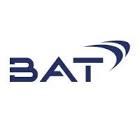British American Tobacco

Estimated electricity consumption
N/A
Countries of production presence
N/A
British American Tobacco (BAT) is a leading multinational company in the tobacco industry, headquartered in London, United Kingdom. The company has a strong presence in more than 180 countries, with a workforce of over 55,000 employees worldwide. BAT is primarily engaged in the manufacturing and sale of cigarettes, cigars, and other tobacco products.
The company has been in operation for more than a century and has built a reputation for innovation and quality in the tobacco industry. BAT has a diverse portfolio of brands, including Dunhill, Lucky Strike, Rothmans, and Pall Mall, among others. The company's products are sold in both developed and emerging markets, making it one of the largest tobacco companies in the world.
As a global company, BAT is committed to reducing its carbon footprint and contributing to the decarbonisation of the economy. The company has set ambitious targets to reduce its greenhouse gas emissions by 30% by 2025 and 50% by 2030, compared to its 2016 baseline. BAT is also committed to sourcing 50% of its energy from renewable sources by 2030.
To achieve its decarbonisation goals, BAT has implemented a range of initiatives, including energy efficiency measures, renewable energy projects, and the use of corporate power purchase agreements (PPAs). The company has invested in energy-efficient technologies and processes, such as LED lighting and heat recovery systems, to reduce its energy consumption and carbon emissions.
In addition, BAT has invested in renewable energy projects, such as wind and solar farms, to generate clean energy and reduce its reliance on fossil fuels. The company has also entered into corporate PPAs with renewable energy developers to secure long-term, low-cost renewable energy for its operations.
BAT's commitment to decarbonisation is not only driven by environmental concerns but also by business imperatives. The company recognizes that climate change poses significant risks to its operations, including supply chain disruptions, regulatory changes, and reputational damage. By reducing its carbon footprint and transitioning to renewable energy, BAT is positioning itself as a sustainable and resilient business that can thrive in a low-carbon economy.
BAT's commitment to decarbonisation is reflected in its corporate energy strategy, which is focused on reducing its energy consumption, increasing its use of renewable energy, and improving energy efficiency across its operations. The company has established a dedicated energy team to manage its energy portfolio and implement energy-saving initiatives.
BAT's energy strategy is also aligned with the United Nations Sustainable Development Goals (SDGs), particularly SDG 7 (Affordable and Clean Energy) and SDG 13 (Climate Action). The company's efforts to reduce its carbon footprint and transition to renewable energy contribute to these global goals and demonstrate its commitment to sustainability.
In conclusion, British American Tobacco is a leading multinational company in the tobacco industry, headquartered in London, United Kingdom. The company is committed to reducing its carbon footprint and contributing to the decarbonisation of the economy. BAT has set ambitious targets to reduce its greenhouse gas emissions and increase its use of renewable energy. The company's energy strategy is aligned with the UN SDGs and demonstrates its commitment to sustainability. BAT's efforts to decarbonise its operations and transition to renewable energy are not only driven by environmental concerns but also by business imperatives, as the company recognizes the risks posed by climate change to its operations.